
One of von Moltke's aides visited the site of the battle in the late 19th century and when told of the deployment of the two armies on the battlefield he assumed that there was no way that Tokugawa could have won the battle.
Through lots of diplomacy, about a quarter of the opposing army was induced to switch sides by Tokugawa, some actively attacked their former allies, other took an entirely passive role in the battle.
Curiously, on the eastern part of the battlefield, not much occured. The majority of the opposing armies just sat still. The smaller Tokugawa screening force would have been overwhelmed in a traditional wargame.
Using Piquet's Band of Brothers, I wanted to use the sequence deck to:
1) allow significant numbers to defect
2) allow those defecting unit to remain undetected by their former allies until they act agressively towards them
3) prevent units from defecting to an army that is doing badly
I added these cards in the Army targeted by defections Troubles and Delays Deck:
Turncoat: 1 Vacillating Unit of opponent's choice switches sides. Is out of command. (2 in deck)
Second Thoughts: 1 unit of opponent's choice is now vacillating. (Cannot affect an Elite unit) (3 in deck)
Traitor: A Leader (but not CinC) declares for the other army He can bring over two units with him (1 in deck)
The other army must spend 1 Morale Chip for the Turncoat or Traitor cards to have effect. Remove all cards from deck once played.
In the other Army's Troubles and Delays Deck
Traitors Revealed: Any turncoat units who have not yet acted aggressively can be treated as enemies (4 in deck)
The battlefield from the Ishido perspective. From left to right: The large Mori clan sits on Mt. Nangu; the smaller Kikkawa clan stretches out in from of the hillside; Clan Chosokabe in deploys in a compact mass slightly to the rear. The Tokugawa forces are: the small Yamamouchi contingent faces towards the main battlefield; the significant Asano force anchors the centre; the Ikeda hold in front of the swamp and paddy fields.

The massed Mori on Mount Nangu.

The Chosokabe on far right flank.
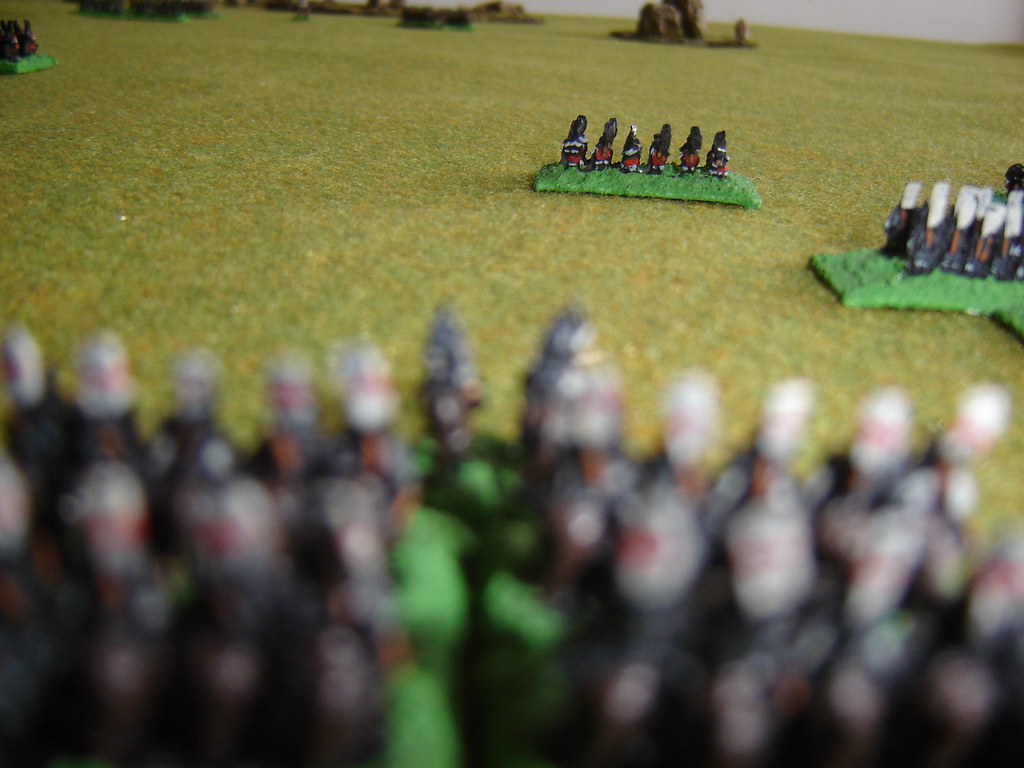
The Ikeda guard the extreme left flank.

The Asano in the centre.

The Yamanouchi hold the junction leading to Sekigahara.
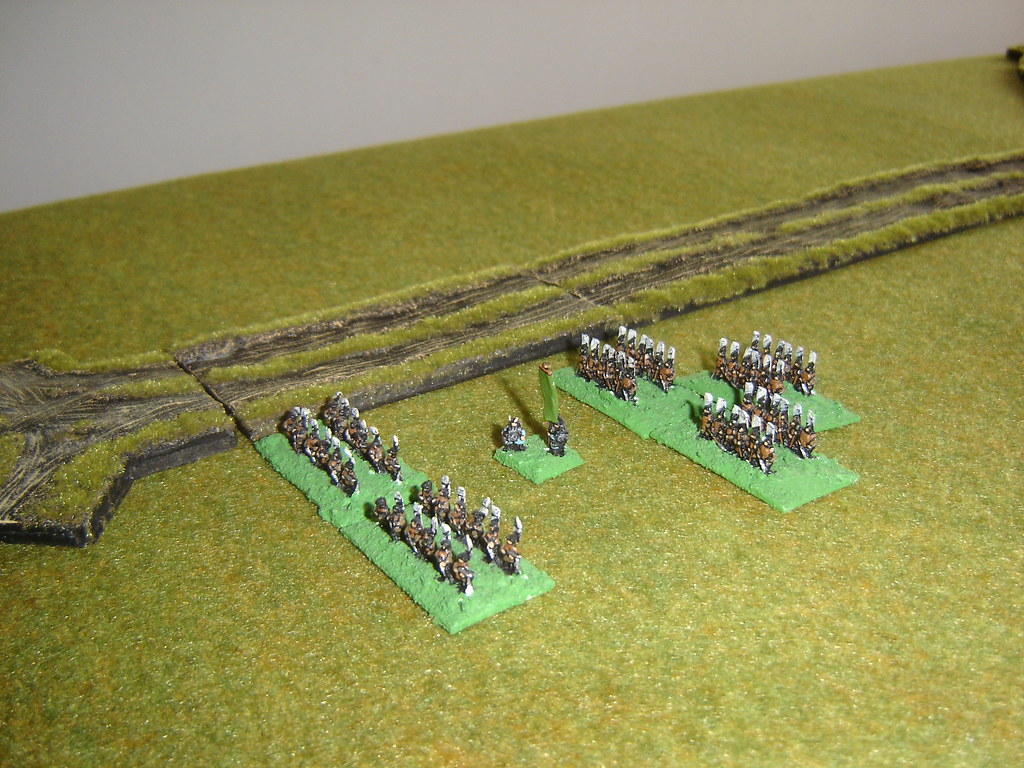
The Head of the Asano Clan commands this section of the battlefield.

The Mori advance slowly, but their opponents do not respond.

The Chosokabe force to the right of Mount Nangu advance, threatening to outflank the entire Tokugawa army.

The Yamanouchi turn from the junction.

The Asano finally advance, heading directly towards the Kikkawa. Both the Ashigaru infantry and the mounted Samurai are vacillating in their willingness for the fight.

The Yamanouchi head for the lower slopes of Mount Nangu

The Asano arquebusiers fire into the Kikkawa, to devastating effect on the opposing gunners.
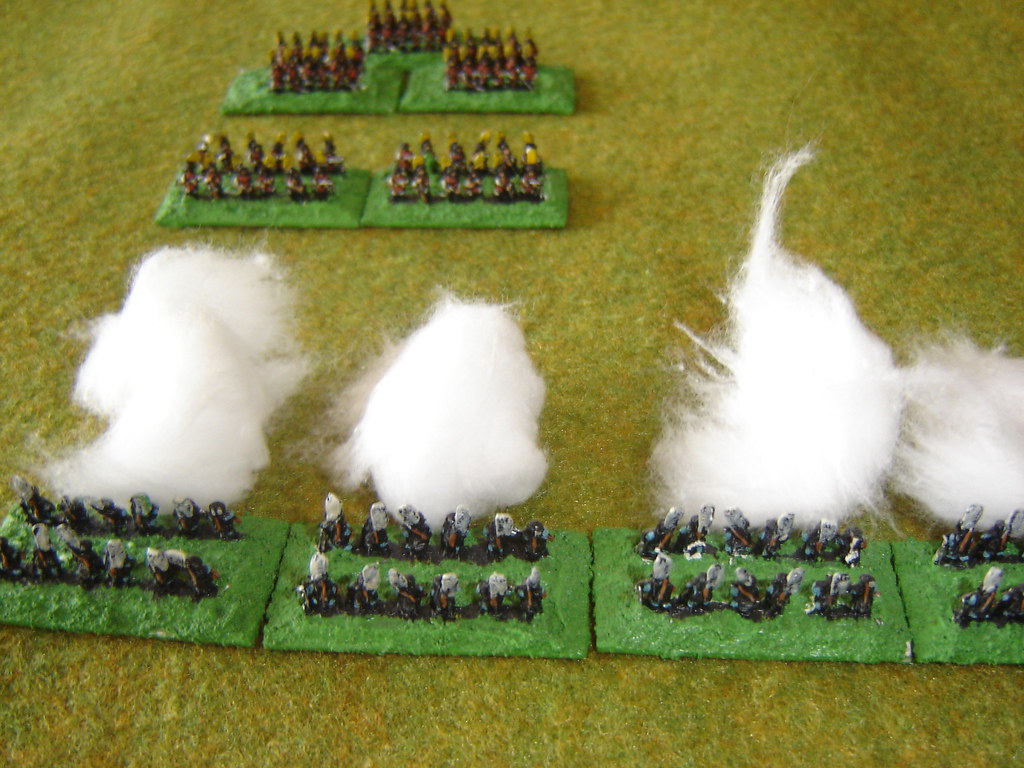
The Arquebusiers wreak havoc on the Kikkawa, driving the Samurai from the field.

The Asano force wheels towards the remnants of the Kikkawa.

Caught in a devastating pincer: the Ashigaru infantry are crushed.

Cavalry charge each other: the Ikeda have the initiative against the Kikkawa.

The Kikkawa are routed off the battlefield. The Mori and the Chosokabe are now separated by the entire enemy force. Is this an opportunity or the death knell for the army?

Half of the Mori Clan peels to the left to crush the Yamonouchi.

Chosokabe cavalry wheels towards the rear of the Ikeda, which is still recovering from the fight against the Kikkawa.
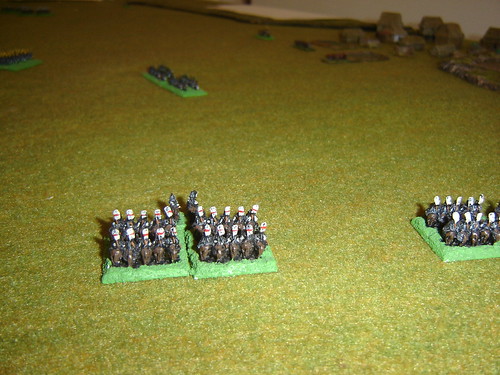
The Ikeda prepare to meet them head on: their leader shows great skill in wheeling his entire force, trusting in the Asano to deal with the Mori who are now behind him.

Chosokabe Samurai aren't quick enough and are flanked by the Ikeda.

Chosokabe looks on, and raises a signal flag: he has now sworn himself to Tokugawa!

The Chosokabe Samurai are destroyed, dying for a leader who has switched sides...

The Asano swing back towards the Mori.

The Mori descend to begin the decisive clash.

The Mori cavalry prepare to charge the Asano lines.

The other half of the Mori prepare to engage the Yamanouchi
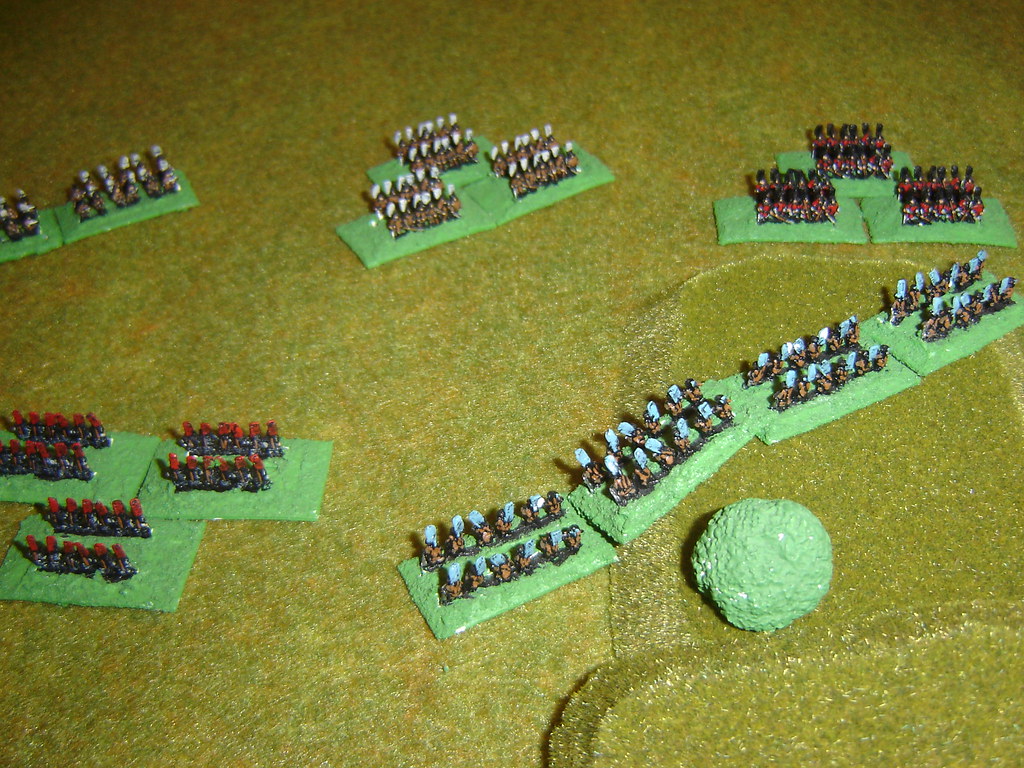
But the Mori lead Samurai unit turns their coats. Now the Mori could be in trouble.

The Chosokabe cavalry, having seen their lord's signal turn on skirmishers behind them

Mori fire into ranks of Samurai turncoats.

The Chosokabe skirmishers are easily brushed aside.

The Asano and Mori lines meet.

The Yamanouchi and their new comrades charge the Mori Ashigaru

On the main battle lines, two Mori Samurai units rout.

Routing Mori Cavalry taken in flank to be destroyed.

The Tokugawa force have beaten the odds, losing no units and sweeping the enemy from the battlefield.
Over the nine turns played, the single Traitor card showed up: taking the pressure off the Ikeda and allowing the Asano to completely concentrate on the Mori. One (out of two) Turncoat cards showed up: possibly swinging the battle between the Mori and the Yamanouchi just as they met on the lower slopes of the moutain. Two (our of three) Second Thoughts showed up, both targeting Kikkawa units which only became involved to be beaten in melee.
The star of the show though must have been the Asano arquebusiers who destroyed two units in a single turn. That's effective fire!
The next two battles will be more straightforward fights.
No comments:
Post a Comment